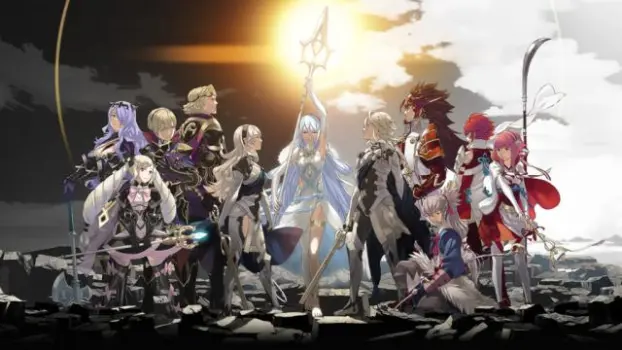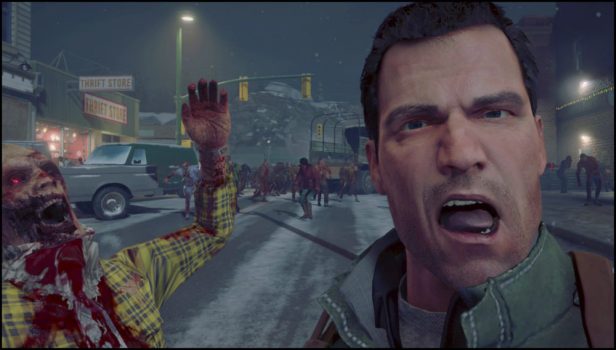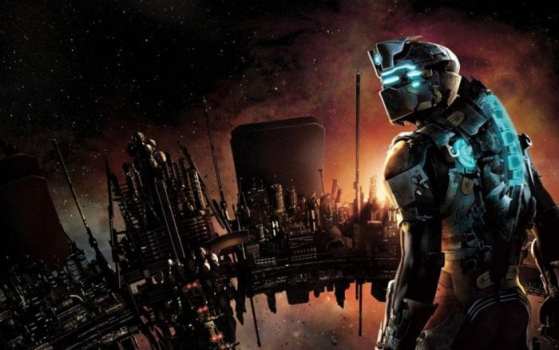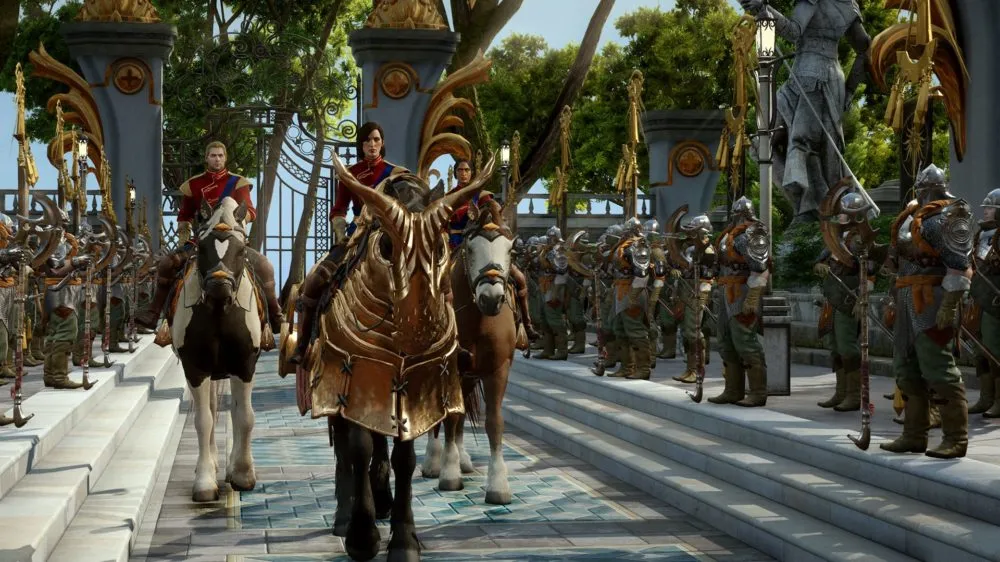It’s one thing to provide players with new story content to expand the overall narrative, but it’s quite another to withhold a game’s true ending behind a DLC paywall. Here we’re looking at some of the worst offenders.
If you liked this list, do check out some of our others, such as 7 Stupid Features Gamers Paid For that Should Have Been Free, and 7 Video Games that Promised Us World Firsts and Flopped.
Fire Emblem Fates – Revelation
There were two different versions of Fire Emblem Fates at launch, Conquest and Birthright, each offering their own substantial story campaigns. And while both do feature conclusions to their storylines, there was a third version of the game available to players that seemed to offer a more complete experience.
Revelations was a paid DLC pack in which players could unite both bands of characters from Conquest and Birthright. What’s more, they could actually go and take on the King of Valla, the Dragon Anankos, who is essentially the ultimate evil of the game. Buy it here.
Revelation’s ending sees Anaonkos defeated and peace restored to the kingdom. It’s an ending that certainly made Conquest and Birthright feel like the “bad” ones.
Dragon Age Inquisition
Dragon Age Inquisition was a terrific return to form for the franchise. It packed a huge amount of content for players to sink their teeth into, and a compelling narrative kept us driving forward until the end. In all fairness, the main storyline was concluded in so much that Corypheus was killed and the good guys one the day. But what was up with the Solas twist, and what happened to Inquisition?
Those questions wouldn’t be answered until the arrival of Trespasser, the game’s third and final DLC. Here, players learn that an uneasy peace has returned to Orlais and Ferelden, but the Inquisition is increasingly being seen as an occupying force rather than the savior it once was. What’s more, a plot by the Qunari threatens to unravel things.
The epilogue does a fairly good job of wrapping up most of our unanswered questions, but after 80-100 hours of the main game, it would have been nice to have those concluded in the original release. Save the DLC for additional tales separate from the main story arc, we say.
Dead Rising
Critical reception to Dead Rising 4 was mixed, and many fans were equally unimpressed with its abrupt ending. After defeating the game’s main antagonist, Frank, Brad, and Vicky make it to a rooftop and await helicopter extraction, but just as Frank is boarding he’s grabbed by zombies. Frank sacrifices himself so his pals can escape, but there’s no explanation of what actually happens to him… until the DLC.
Frank Rising, the game’s premium DLC, begins just as Frank is falling from the helicopter. The story that follows, which sees him transformed into an evo zombie with special powers, feels much more instrumental to the overall narrative than just an additional epilogue.
Surely there should be a rule against ending the game on a cliffhanger if the intention is to conclude the cliffhanger in a subsequent premium DLC. Doing so feels very much like withholding the ending behind a paywall rather than providing cool additional content for players.
Asura’s Wrath
Perhaps the most notorious example of a game in which the ending was hidden behind a paywall, Asura’s Wrath caused more than a bit of controversy when Capcom themselves titled the DLC the “true ending” of the game.
It really sullied what was otherwise a superb story, which is a rarity in beat em’ up games. Again, it was a case of ending on a cliffhanger and then concluding the story in a paid DLC pack –a big no-no in our books. DLC’s continuing main storylines need to tell a disparate plotline that adds only adds tangential substance to the overall plot, rather than actually being required reading to understand.
The Evil Within
The Evil Within was Shinji Mikami’s big return to survival horror, having pioneered the genre with Resident Evil two decades earlier. It was well received, for the most part, but the story wasn’t the easiest to understand. By the game’s conclusion, players were faced with a whole stack of unanswered questions, especially pertaining to who Sebastian’s Wife and Julie actually are actually allied with. They were only later expanded upon in the game’s subsequent DLCs, The Assignment and The Consequence.
We say “expanded upon” because although we did get some clarification, the DLCs actually just posed a whole bunch of new questions in the process.
There was a third DLC, of course, but that was the one where you don a wooden box as a helmet and smash things up with a big club… The narrative was a bit of an afterthought, I think.
AC Revelations
Revelations caps off Ezio’s trilogy story, and despite its name, does a poor job of actually explaining what the hell is going on in the series’ modern day storyline. It’s here where the series’ starts to get super convoluted, with Desmond still stuck in the same comma he fell into during Brotherhood, and a whole bunch of looming questions still unanswered from that game.
Enter the DLC, The Lost Archive, which attempts to provide some context to the events from both. Importantly, after having being made to stab Lucy in Brotherhood, we finally discover that she was a double agent for the Templars. Before then we had absolutely no idea why Juno had instructed us to do so and would have never been any the wiser without paying extra for The Lost Archives.
Prince of Persia
Prince of Persia’s ending was a masterful piece of interactive storytelling. It was poignant and powerful, forcing players to submit to the prince’s temptation, dooming the world to destruction to save his lover. It ended on a bit of a cliffhanger, but there was nothing wrong with that in itself. In fact, it heightened the impact of the narrative.
The issue was that as soon as Ubisoft announced the DLC would carry on from the game’s ending, it immediately tempted players into the purchase. It was hard not to want to see which direction the developers intended the story to go beyond the final credits of the main games.
But was the DLC worth it? Hardly, the $10 expansion was basically a short conclusion to the story that never needed to be told.
Dead Space 3
Dead Space was a franchise that raised the benchmark for survival horror games but then proceeded to slowly fall from grace. The third game marks the end of the road for the franchise. It continued the terrifying atmosphere and clever mechanics of previous games but started to tread water for new ideas and narrative impact. The story’s ending, in particular, caused a bit of controversy in tandem with the later released DLC.
In the main game, it’s made pretty evidently clear that Isaac Clarke had died in its closing moments. However, the DLC Awakened picks up where things left off, and with Clarke very much alive. It details their journey back to earth and a big final twist, which all felt rather like the ending of the game had been sliced off like a Necromorph’s back legs and fed to us as premium DLC.

Fire Emblem Fates - Revelation
Revelations was a paid DLC pack in which players could unite both bands of characters from Conquest and Birthright. What’s more, they could actually go and take on the King of Valla, the Dragon Anankos, who is essentially the ultimate evil of the game.
Revelation’s ending sees Anankos defeated and peace restored to the kingdom. It’s an ending that certainly made Conquest and Birthright feel like the “bad” ones.

Dragon Age Inquisition - Trespasser
Those questions wouldn’t be answered until the arrival of Trespasser, the game’s third and final DLC. Here, players learn that an uneasy peace has returned to Orlais and Ferelden, but the Inquisition is increasingly being seen as an occupying force rather than the savior it once was. What’s more, a plot by the Qunari threatens to unravel things.
The epilogue does a fairly good job of wrapping up most of our unanswered questions, but after 80-100 hours of the main game, it would have been nice to have those concluded in the original release. Save the DLC for additional tales separate from the main story arc, we say.

Dead Rising 4 - Frank Rising
Frank Rising, the game’s premium DLC, begins just as Frank is falling from the helicopter. The story that follows, which sees him transformed into an evo zombie with special powers, feels much more instrumental to the overall narrative than just an additional epilogue.
Surely there should be a rule against ending the game on a cliffhanger if the intention is to conclude the cliffhanger in a subsequent premium DLC. Doing so feels very much like withholding the ending behind a paywall rather than providing cool additional content for players.

Asura's Wrath - Episodes 19 - 22
It really sullied what was otherwise a superb story, which is a rarity in beat em’ up games. Again, it was a case of ending on a cliffhanger and then concluding the story in a paid DLC pack --a big no-no in our books. DLC’s continuing main storylines need to tell a disparate plotline that adds only adds tangential substance to the overall plot, rather than actually being required reading to understand.

The Evil Within - The Assignment and The Consequence
We say “expanded upon” because although we did get some clarification, the DLCs actually just posed a whole bunch of new questions in the process.
There was a third DLC, of course, but that was the one where you don a wooden box as a helmet and smash things up with a big club… The narrative was a bit of an afterthought, I think.

Assassin's Creed Revelations - The Lost Archives
Enter the DLC, The Lost Archive, which attempts to provide some context to the events from both. Importantly, after being made to stab Lucy in Brotherhood, we finally discover that she was a double agent for the Templars. Before then, we had absolutely no idea why Juno had instructed us to do so and would have never been any the wiser without paying extra for The Lost Archives.

Prince of Persia - Epilogue
The issue was that as soon as Ubisoft announced the DLC would carry on from the game’s ending, it immediately tempted players into the purchase. It was hard not to want to see which direction the developers intended the story to go beyond the final credits of the main games.
But was the DLC worth it? Hardly, the $10 expansion was basically a short conclusion to the story that never needed to be told.

Dead Space 3 - Awakened
In the main game, it’s made pretty evidently clear that Isaac Clarke had died in its closing moments. However, the DLC, Awakened, picks up where things left off, and with Clarke very much alive. It details their journey back to earth and a big final twist, which all felt rather like the ending of the game had been sliced off like a Necromorph’s back legs and fed to us as premium DLC.





Published: Oct 22, 2018 02:56 pm